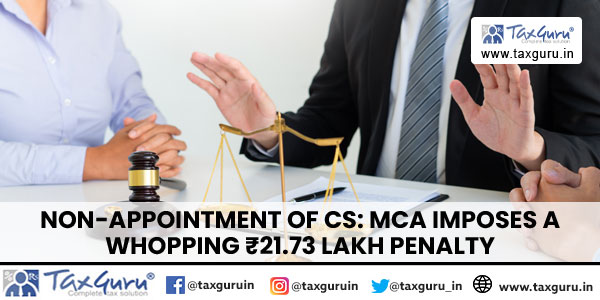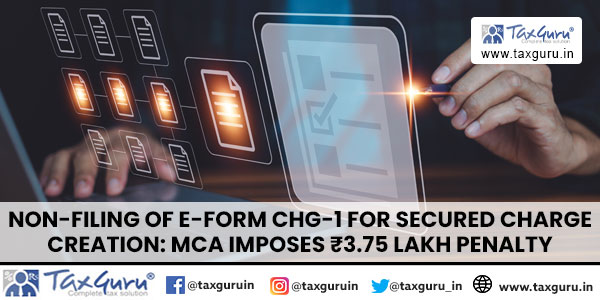Section 44AD – Special provision for calculating presumptive profit for small or mid size business under Income Tax Act
Part 1: General provisions –
With almost no business transactions carried on within the country after mid March due to unforeseen COVID-19 situation, many businesses are hampered in their aim to achieve year-end targets. Specifically, individuals or HUFs carrying on small or mid size businesses are out of those affected the most. Family members’ carrying on different proprietorship business under individual names is not unfamiliar practice in India. The bifurcation of turnover, lower tax implications by taking benefit of slab rate exemption available to each individual and flexibility of carrying different category of business under one family are few objectives that drive people for such practice.
The result of said practice is generally observed having lower turnover in each proprietorship business usually below Rs. 2 crore. Also, due to adverse effect on economy during ending part of the financial year, many businesses may have failed to cross Rs. 2 crore turnover mark.
In such situation, persons carrying on business being individual, HUF or partnership firm (other than LLP) have option to opt for presumptive taxation under section 44AD of the Income Tax Act, 1961. Accordingly, it is expected that voluminous income tax returns will be filed under this section for FY 2019-20 (AY 2020-21).
Section 44AD was first introduced in Previous Year (PY) 1995-96 relevant to Assessment Year (AY) 1996-97. Previous year is the term use for current financial year under Income Tax Act. Introduction of the section was necessitate to satisfy the need of small and mid size business to eliminate the requirement for maintenance books of account and ultimately to get them audited (generally known as tax audit) as per Income Tax Laws and thereby reduce the compliance cost to such business.
The presumptive taxation section 44AD allows to compute business income (generally known as total profit) as below:
| Nature of Turnover or Gross Receipt | Portion to consider as business income |
| Received by an account payee cheque or bank draft or use of ECS through a bank account or other electronic mode as may be prescribed | 6 % of such turnover or gross receipts |
| Receipts by other than above methods | 8 % of such turnover or gross receipts |
The turnover amount pertaining to FY 2019-20 which is received during the financial year or upto the date of filing the original return of income tax return as specified u/s. 139(1) i.e. 31st July, 2020 (if not extended) are also allowed to be consider for above mention computation of income at 6 %. The said lower rate of 6 % is introduced to promote digital transactions among small and mid size business.
The section has been amended over the period to suit needs of business. The various provisions of section 44AD as applicable for FY 2019-20 (AY 2020-21) are as under:
1. Applicable to resident assessee being individual, HUF or partnership firms other than LLP,
2. Carrying on business having turnover/gross receipt upto Rs. 2 crore during the financial year,
3. Assessee shall not claim deduction u/s. 10AA or as per Chapter VI-A under heading “C. – Deductions in respect of certain incomes” (e.g. section 80IA, 80IAB, 80IAC etc.) for the financial year,
4. Any deductions under section 30 to 38 are deemed to have been allowed and no separate claim will be allowed (this also includes depreciation allowance on assets under section 32 and consequently, the written down value of assets shall be computed accordingly),
5. Assessee is not under compulsion to maintain books of accounts as per section 44AA or get them audited as per section 44AB,
6. Assessee carrying on following activities is not allowed to claim benefit under this section:
- Profession as referred to in section 44AA(1) (also referred as notified profession), or
- Earning income in the nature of commission or brokerage, or
- Carrying on any agency business.
The above are normal provisions under section 44AD but the amendment made by Finance Act, 2016 under the section has imposed restriction of 5 years which is the main and most essential provision to understand before applying section 44AD for any assessee. The said restriction has impact which may create trapped situation for the assessee in future, if the same is not understood in clear manner. The said restriction requires in-depth analysis which is forming part of second continued phase of this article.
Part 2: Restriction of 5 years –
The amendment made by Finance Act, 2016 has substituted sub-section (4) and (5) of section 44AD. The newly substituted sub-section (4) has imposed restriction on the assessee to declare profit from business as per this presumptive section for a period of 5 subsequent years from the first year in which benefit under this section is opted for. And in case, the assessee does not declare profit as per section 44AD in any of the 5 subsequent years then such assessee shall not be allowed to claim benefit of presumptive profit under this section for subsequent 5 years from the year in which the profit is not so declared.
Further, newly substituted sub-section (5) provides that in case of such assessee, who does not declare profit as per section 44AD in any of the five subsequent assessment years, and who has total income exceeding maximum amount not chargeable to tax, shall maintain books of account as per section 44AA and get them audited as per section 44AB for such year.
This means if an assessee, say Mr. A, has opted for presumptive taxation under section 44AD for PY 2019-20 then Mr. A shall continue to declare profit under this section for PY 2020-21 to PY 2024-25. In case Mr. A does not declare profit for any PY between PY 2020-21 and PY 2024-25 as per presumptive provisions, let say he does not declare profit as per section 44AD for PY 2022-23, then Mr. A will not be allowed to opt for the section from PY 2023-24 to PY 2027-28. Further, Mr. A is require to maintain books of accounts and also get them audited as per sections 44AA and 44AB respectively for PY 2022-23 in case his total income exceeds the exempt slab applicable to him.
Conclusion:
Now by taking support of above example, following few observations can be drawn:
- The income slab applicable to Mr. A for PY 2022-23 is to be consider to verify applicability of sub-section (5).
- If Mr. A declares profits lower than 8 % or 6 % in PY 2019-20 then sub-section (5) will not get attract and in such case maintenance of books of accounts as per section 44AA and audit under section 44AB is not required.
- If Mr. A does not declare profit as per section 44AD in first year itself i.e. PY 2019-20 then he is not required to maintain books of accounts and get them audited under section 44AA and 44AB respectively since provisions of sub-section (4) is not applicable in first year but applicable only if income is not declared as per section 44AD in any of five years subsequent to first year in which benefit under this section is opted.
Does this mean, Mr. A is required to maintain books of accounts and get them audited for each of the six years i.e. from PY 2022-23 to PY 2027-28, if his total income exceeds maximum amount not chargeable to tax in each such year, up to which restriction under sub-section (4) is applicable?
In absence of any clarification on above question or by going through the strict meaning of the sub-section (5), it can be derived that sub-section (4) will be applicable to Mr. A from PY 2022-23 to PY 2027-28. Accordingly, he is required to maintain books of accounts and get them audited under section 44AA and 44AB respectively.
In view of the above, tax consultants or assessees have to be clear before opting for section 44AD for the first time so that there may not be difficulties in such cases moving further which may create cost for assessees.




























A very insightful article, Thank you for sharing